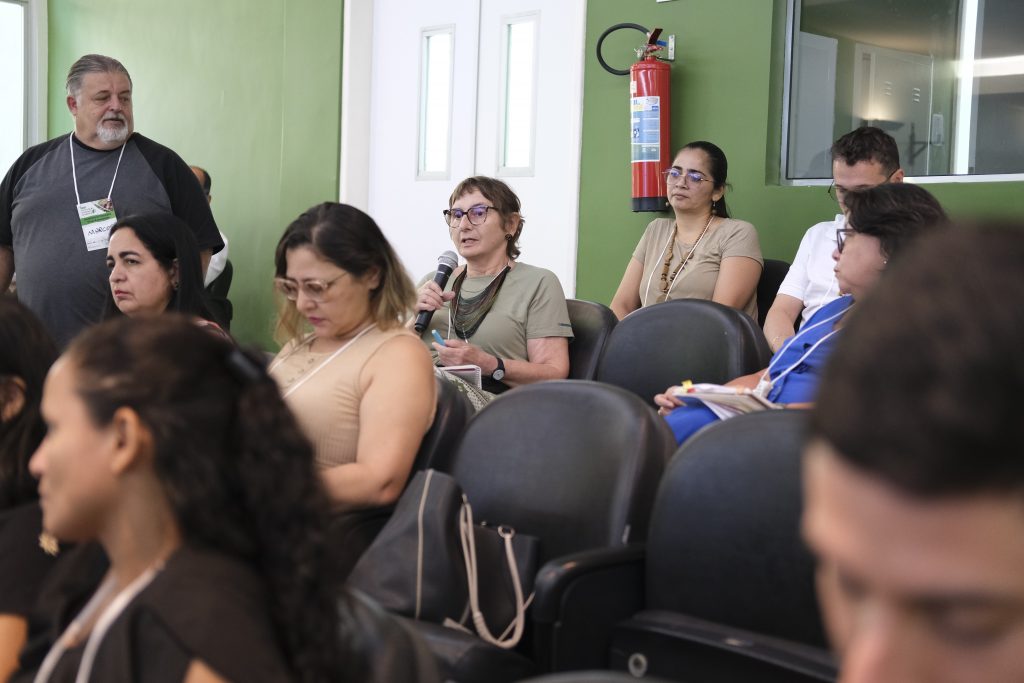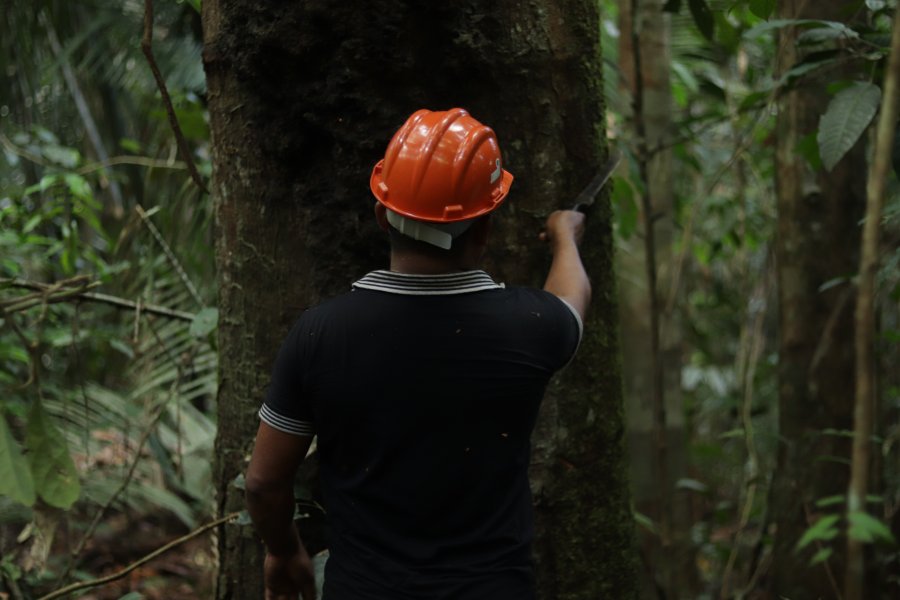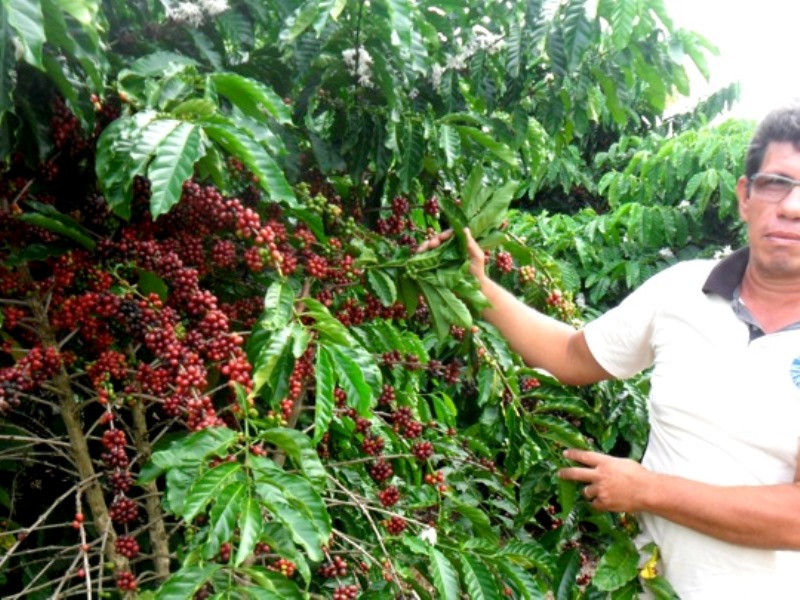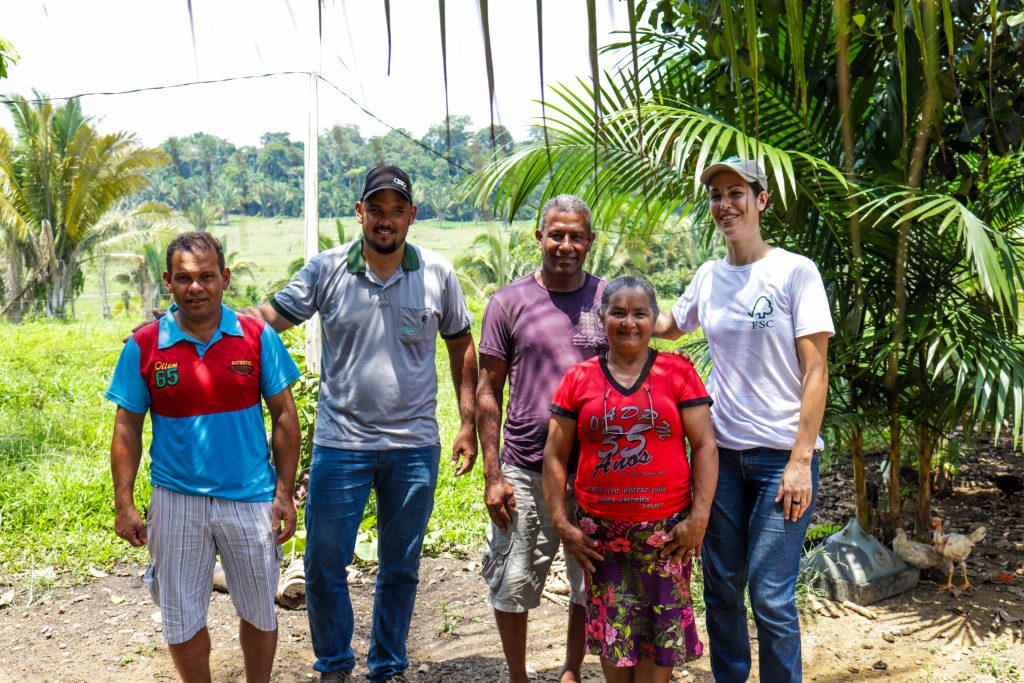Carbono Neutro recebe novas famílias para o Plantio 2019
The Agroforestry System model has transformed the profile and improved the quality of life of the producers from the region
Text: Henrique Saunier
Translation: Felipe Sá
Photo: Athena Meincke
The transition from traditional agriculture to Agroforestry Systems (SAFs, in Portuguese) of less impact to the environment is just one of the achievements for around 40 families that live in 8 communities inside the Uatumã Sustainable Development Reserve (RDS, in Portuguese), all of them are supported by Idesam’s Carbon Neutral Program (PCN, in Portuguese). 9 more families are joining the Program in 2019. The benefits go beyond offsetting and neutralizing tons of CO2, including the delivery of important positive social impact in the region.
Currently in an advanced stage of preparation, the opening of the “nests” that will receive the seedlings, PCN’s 2019 Planting will be one of the largest already coordinated by Idesam, accounting for 12 thousand future trees planted in a 1 year cycle. With 9 more families, the plantings that will take place in the 35 SAFs monitored by Idesam should start in the first half of February.
The increasing engagement of women in the sector and a greater diversity of products cultivated are already impacts of the work carried out in almost a decade by Idesam in partnership with local residents. Francimeire Brigido, one of the farmers who are ready to start this year’s plantings, is a clear example of the fundamental role women have in the Program. Born and raised in the Livramento community, she is passionate about the plants that decorate the surroundings of her home, and the duty is no sacrifice or news to her or to the other women of the Uatumã RDS, who help keep the Agroforestry Systems areas supported by Idesam standing and healthy.
“I really enjoy living here and, since we started working with Idesam’s project, I was able to get in touch with a larger variety of seedlings. Cultivating, taking care of the plantings and of my plants fulfils me. I am really grateful for these people who support this project and help us to continue this work of great importance to nature”, says Francimeire in a statement about the impacts of the Carbon Neutral Program to the community.
To PCN’s technical coordinator, Jefferson Souza, who offers constant assistance to the producers and closely monitors the local reality, this kind of transformation is one of the reasons why he considers the project as successful and that will hopefully continue for several years. In his assessment, the Program was able to demystify, to the community members, many questions concerning the work carried out by institutions like Idesam and the cultivation of SAFs which, over the years, aroused the interest of other producers that saw the positive results becoming reality.
“The extractivistic culture is really present, but now we are perceiving a change towards a farming beyond self-consumption, something driven by the courses and talks that Idesam promoted with the families of the region. Before, there used to be a production almost exclusively of manioc, now there is already a perspective to plant açaí, cocoa and cupuaçu in the future, but this process of raising awareness is also gradual”, states Jefferson.
Idesam’s Climate Change manager, Pedro Soares, says the planting represents a milestone for Idesam’s PCN, as it reflects an expansion of the Program in recent years. “We hit a record in the planting of trees in the Uatumã RDS, overcoming 12 thousand seedlings in 1 year, what directly communicates our mission to attract partners who are willing to reduce their carbon footprints, besides the benefits for climate and the communities”, he highlights.
In addition to the community members that actively participate in the PCN, other actors that benefit from it are the nurseries that provide the seedlings to the Program, all of them are purchased from local producers. The planting also has the goal of improving the income of locals, targeting species with strong commercial appeal to the local and even the international markets, such as the introduction of certain types of peppers and plants for extraction and processing of vegetable oils.






Leave a Reply